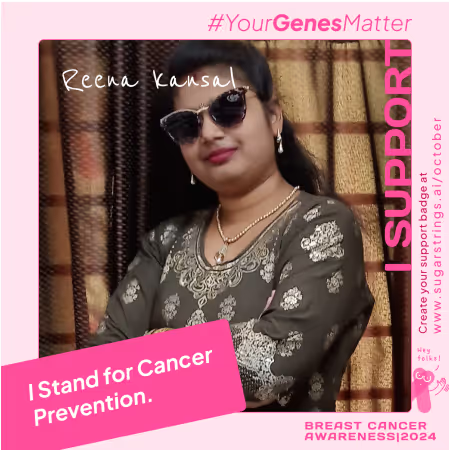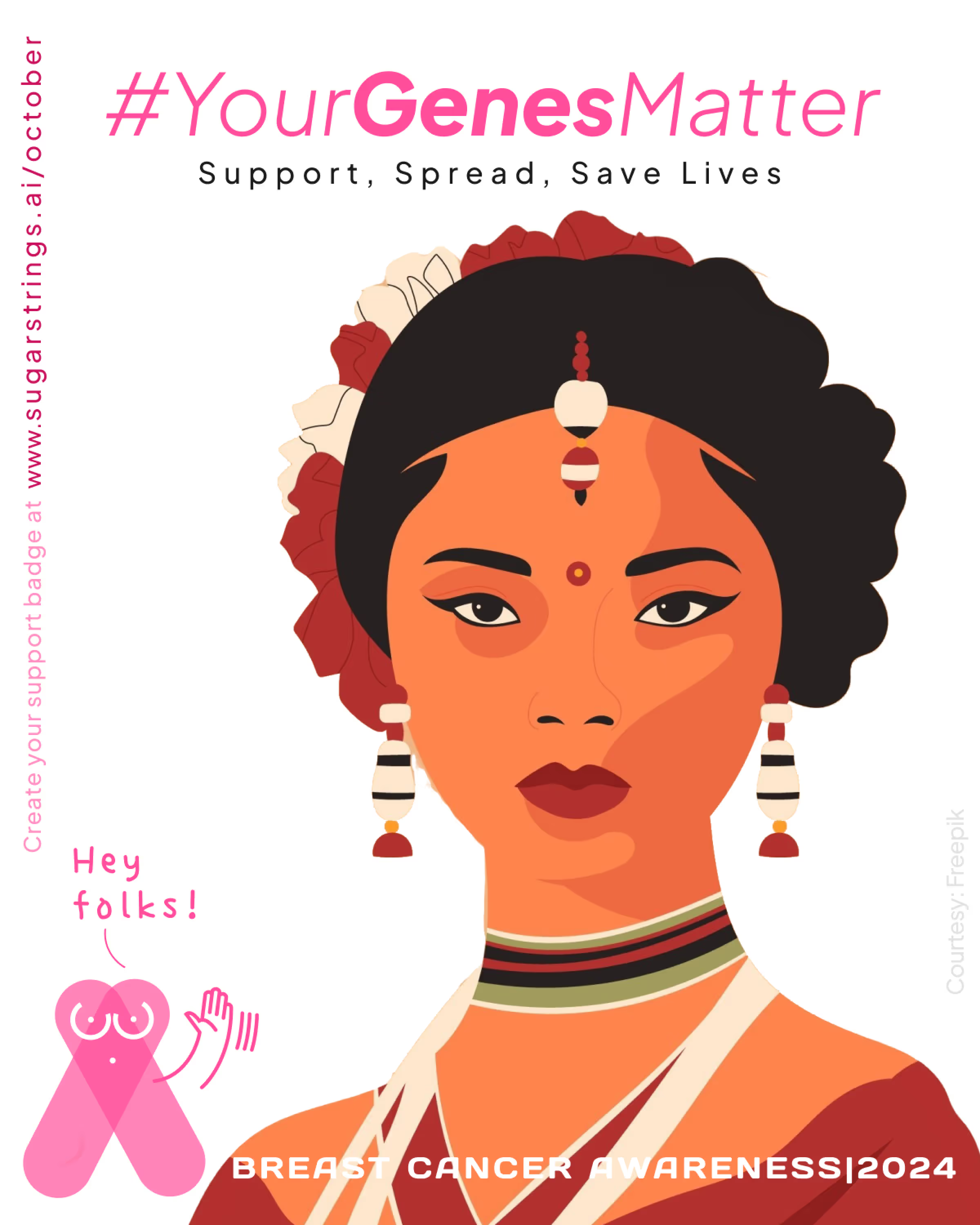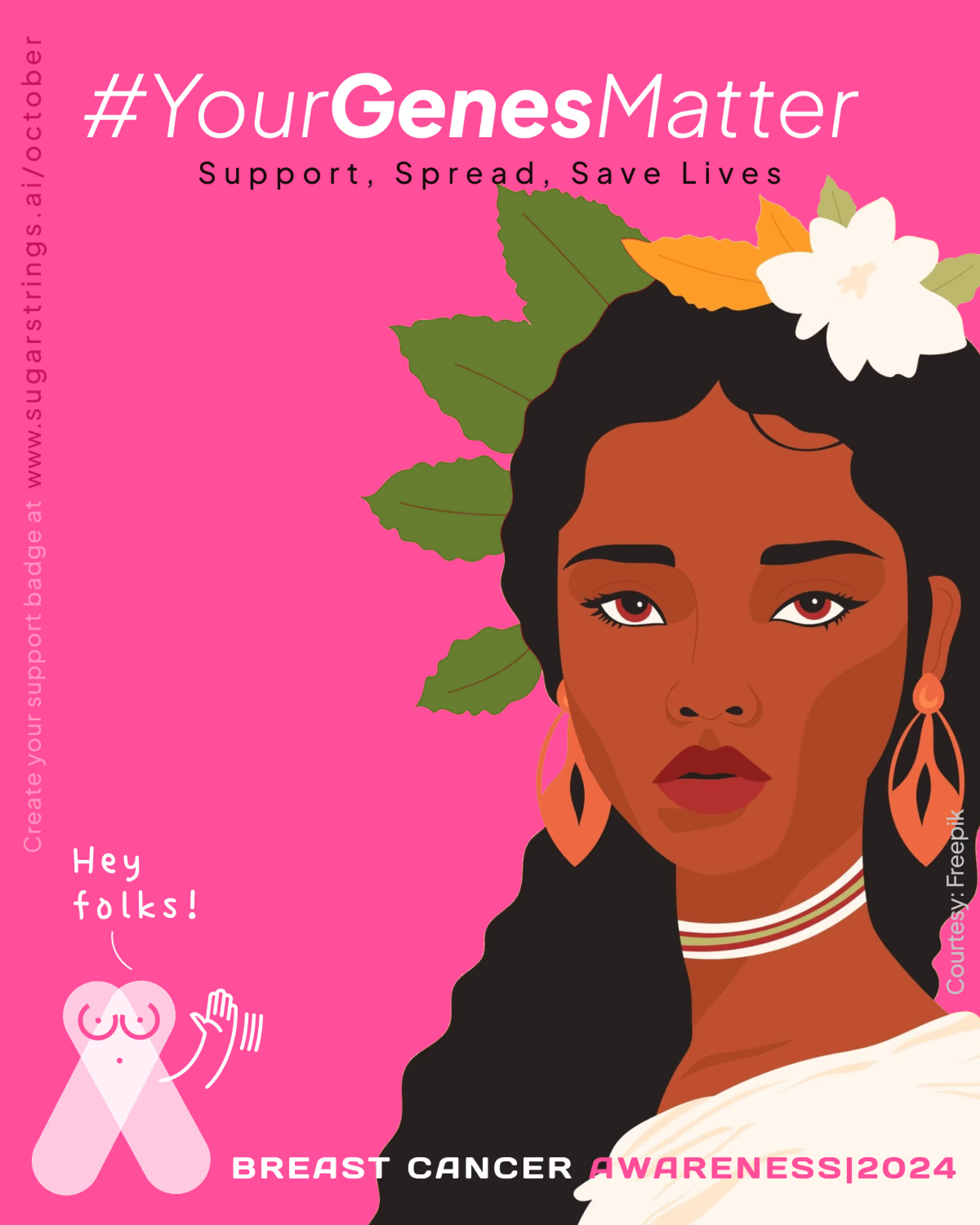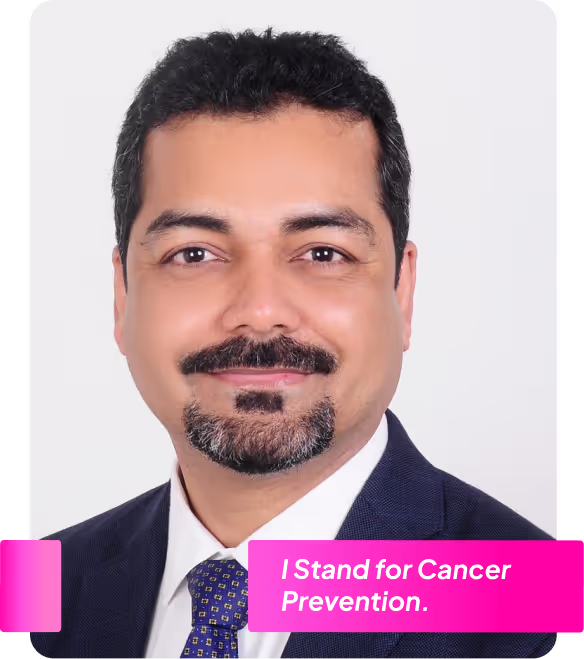#YourGenesMatter
Support, Spread, Save Lives

About
campaign
Breast cancer results from interactions between genetic predisposition and environmental factors or lifestyle choices.
With genetic insights, we can identify risks early, make informed decisions, and potentially prevent cancer before it starts.
Join us in raising awareness about the power of genetics and how understanding your genes can be a game-changer in the fight against breast cancer.
participateWith genetic insights, we can identify risks early, make informed decisions, and potentially prevent cancer before it starts.
Join us in raising awareness about the power of genetics and how understanding your genes can be a game-changer in the fight against breast cancer.
5 facts
About
Breast
Cancer that everyone must know.
1.
Early Detection Saves Lives:
Early-stage breast cancer has a survival rate of over 90%.
2.
Gene mutations increase risk:
Mutations in any of over 25 genes can lead to breast cancer, but early identification through genetic testing enables proactive monitoring and preventive strategies.
3.
Lifestyle changes can reduce genetic risk:
Even if someone has a genetic predisposition, lifestyle factors like maintaining a healthy weight, limiting alcohol, and staying active can lower the chances of breast cancer developing.
4.
Risk-reducing medication is available:
For individuals with high-risk genetic mutations, preventive medications can reduce the risk of developing breast cancer by up to 50% when identified early.
5.
Prophylactic surgeries can be life-saving:
Knowing genetic risk early allows for preventive surgeries like a mastectomy or oophorectomy, which can reduce breast cancer risk by up to 95%.




smallname
GET INVOLVED.
RAISE AWARENESS.
RAISE AWARENESS.
Understanding your genetic risk isn't just knowledge—it's power.
Join us in spreading awareness about the critical role genes play in breast cancer. By actively participating, you can help others realize that early detection through genetic insights can lead to effective prevention and treatment strategies. Let's make a tangible difference together.
Join us in spreading awareness about the critical role genes play in breast cancer. By actively participating, you can help others realize that early detection through genetic insights can lead to effective prevention and treatment strategies. Let's make a tangible difference together.
Support badges designs



#YourGenesMatter
CREATE YOURSUPPORT BADGE
NOW!
NOW!
Instruction for the participants
- Upload your photo and details
- Receive the badge via email
- Share it on social media and tag us
FIND US ON
CREATE NOWA BRIEF HISTORY OF CANCER GENES AND BREAST CANCER

“Life comes with many challenges. The ones that should not scare us are the ones we can take on and take control of.”
- Angelina Jolie
In the mid-1990s, BRCA1 and BRCA2 were the first genes identified to be associated with breast cancer. These genes normally help repair damaged DNA, but mutations in either gene can significantly increase the risk of breast cancer, ovarian cancer, and other cancers.
The discovery of gene mutations revolutionised cancer prevention, providing a genetic explanation for why some families have a higher risk of developing cancer. For example, individuals with BRCA mutations can have up to a 72% lifetime risk of developing breast cancer.
One of the most pivotal moments in raising global awareness about cancer gene testing occurred in 2013, when Hollywood actress Angelina Jolie publicly announced her decision to undergo a preventive double mastectomy after learning she carried a BRCA1 mutation.
Jolie’s courageous decision sparked a worldwide conversation about genetic testing, prevention, and women’s health. Her openness empowered many to seek genetic counseling and testing, bringing preemptive genetic testing into mainstream public consciousness.
Since then, genetic testing has become more accessible, allowing many individuals to take proactive measures in managing their cancer risks. The discovery of these genes has become a milestone in personalized cancer prevention and care.
The discovery of gene mutations revolutionised cancer prevention, providing a genetic explanation for why some families have a higher risk of developing cancer. For example, individuals with BRCA mutations can have up to a 72% lifetime risk of developing breast cancer.
One of the most pivotal moments in raising global awareness about cancer gene testing occurred in 2013, when Hollywood actress Angelina Jolie publicly announced her decision to undergo a preventive double mastectomy after learning she carried a BRCA1 mutation.
Jolie’s courageous decision sparked a worldwide conversation about genetic testing, prevention, and women’s health. Her openness empowered many to seek genetic counseling and testing, bringing preemptive genetic testing into mainstream public consciousness.
Since then, genetic testing has become more accessible, allowing many individuals to take proactive measures in managing their cancer risks. The discovery of these genes has become a milestone in personalized cancer prevention and care.
Featured article

Your Risk of Breast Cancer If Your Mother Had Breast Cancer
How her disease (and your overall family history) impacts you
By Julie Scott, MSN, ANP-BC, AOCNP May 15, 2024
Having a mother with breast cancer increases the chance that you could also develop the disease. While most breast cancer is not hereditary,1 it is valuable to know if you have family members who were ever diagnosed with the disease. Women with a mother, sister, or daughter who developed...
READ THE ARTICLEPOWERED BY YOUR SUPPORT





























































